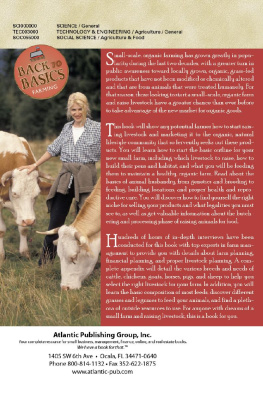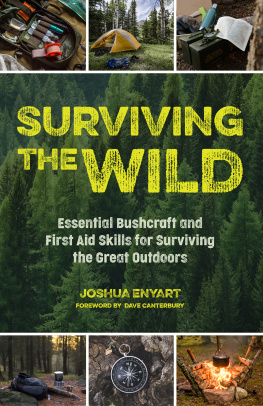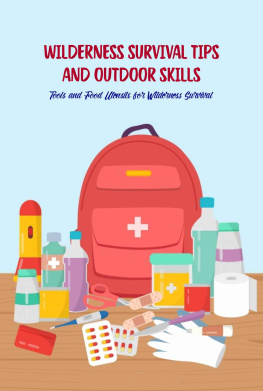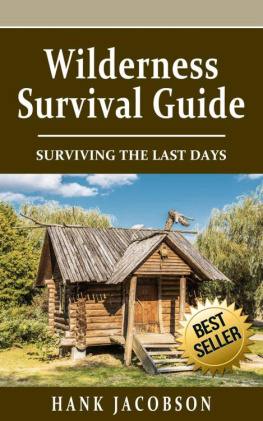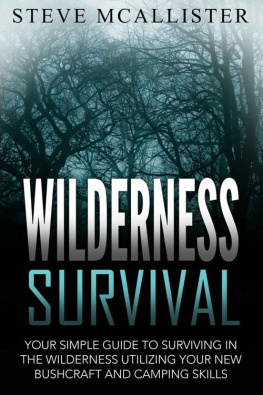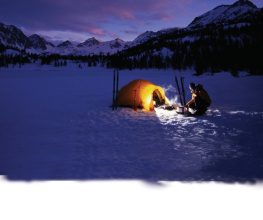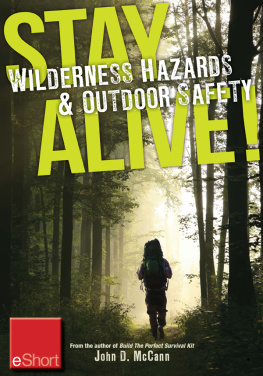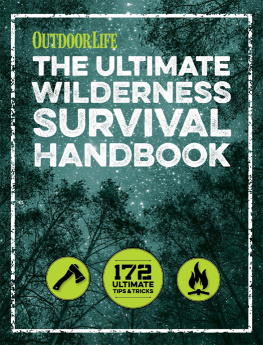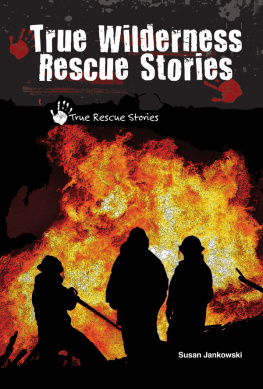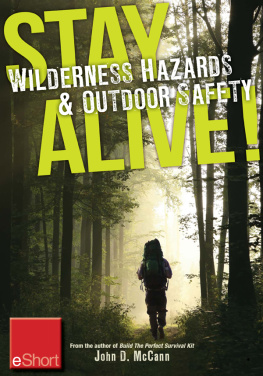A Complete Guide to
Surviving in the Wilderness
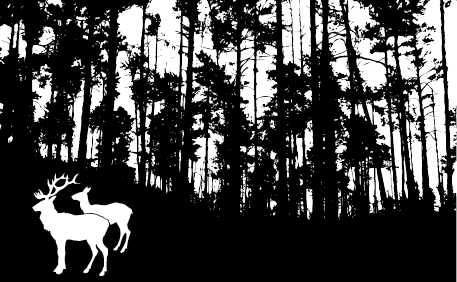
Everything You Need to Know to Stay Alive and Get Rescued
By Terri Paajanen
A Complete Guide to Surviving in the Wilderness: Everything You Need to Know to Stay Alive and Get Rescued
Copyright 2012 Atlantic Publishing Group, Inc.
1210 SW 23rd Place Ocala, Florida 34471
Phone 800-814-1132 Fax 352-622-1875
Website:
SAN Number: 268-1250
No part of this publication may be reproduced, stored in a retrieval system, or transmitted in any form or by any means, electronic, mechanical, photocopying, recording, scanning, or otherwise, except as permitted under Section 107 or 108 of the 1976 United States Copyright Act, without the prior written permission of the Publisher. Requests to the Publisher for permission should be sent to Atlantic Publishing Group, Inc., 1210 SW 23rd Place, Ocala, Florida 34471
Library of Congress Cataloging-in-Publication Data
Paajanen, Terri, 1971-
A complete guide to surviving in the wilderness : everything you need to know to stay alive and get rescued / Terri Paajanen.
p. cm.
Includes bibliographical references and index.
ISBN 978-1-60138-581-9 (alk. paper) -- ISBN 1-60138-581-1 (alk. paper) 1. Wilderness survival. 2. Survival. I. Title.
GV200.5.P236 2012
613.69--dc23
2012015627
LIMIT OF LIABILITY/DISCLAIMER OF WARRANTY: The publisher and the author make no representations or warranties with respect to the accuracy or completeness of the contents of this work and specifically disclaim all warranties, including without limitation warranties of fitness for a particular purpose. No warranty may be created or extended by sales or promotional materials. The advice and strategies contained herein may not be suitable for every situation. This work is sold with the understanding that the publisher is not engaged in rendering legal, accounting, or other professional services. If professional assistance is required, the services of a competent professional should be sought. Neither the publisher nor the author shall be liable for damages arising herefrom. The fact that an organization or website is referred to in this work as a citation and/or a potential source of further information does not mean that the author or the publisher endorses the information the organization or website may provide or recommendations it may make. Further, readers should be aware that Internet websites listed in this work may have changed or disappeared between when this work was written and when it is read.
TRADEMARK DISCLAIMER: All trademarks, trade names, or logos mentioned or used are the property of their respective owners and are used only to directly describe the products being provided. Every effort has been made to properly capitalize, punctuate, identify, and attribute trademarks and trade names to their respective owners, including the use of and wherever possible and practical. Atlantic Publishing Group, Inc. is not a partner, affiliate, or licensee with the holders of said trademarks.

A few years back we lost our beloved pet dog Bear, who was not only our best and dearest friend but also the Vice President of Sunshine here at Atlantic Publishing. He did not receive a salary but worked tirelessly 24 hours a day to please his parents.
Bear was a rescue dog who turned around and showered myself, my wife, Sherri, his grandparents Jean, Bob, and Nancy, and every person and animal he met (well, maybe not rabbits) with friendship and love. He made a lot of people smile every day.
We wanted you to know a portion of the profits of this book will be donated in Bears memory to local animal shelters, parks, conservation organizations, and other individuals and nonprofit organizations in need of assistance.
Douglas and Sherri Brown
PS: We have since adopted two more rescue dogs: first Scout, and the following year, Ginger. They were both mixed golden retrievers who needed a home.
Want to help animals and the world? Here are a dozen easy suggestions you and your family can implement today:
- Adopt and rescue a pet from a local shelter.
- Support local and no-kill animal shelters.
- Plant a tree to honor someone you love.
- Be a developer put up some birdhouses.
- Buy live, potted Christmas trees and replant them.
- Make sure you spend time with your animals each day.
- Save natural resources by recycling and buying recycled products.
- Drink tap water, or filter your own water at home.
- Whenever possible, limit your use of or do not use pesticides.
- If you eat seafood, make sustainable choices.
- Support your local farmers market.
- Get outside. Visit a park, volunteer, walk your dog, or ride your bike.
Five years ago, Atlantic Publishing signed the Green Press Initiative. These guidelines promote environmentally friendly practices, such as using recycled stock and vegetable-based inks, avoiding waste, choosing energy-efficient resources, and promoting a no-pulping policy. We now use 100-percent recycled stock on all our books. The results: in one year, switching to post-consumer recycled stock saved 24 mature trees, 5,000 gallons of water, the equivalent of the total energy used for one home in a year, and the equivalent of the greenhouse gases from one car driven for a year.
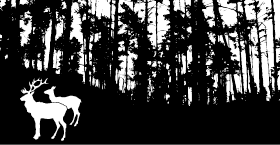
Dedication
I wouldnt have been able to write this book without Mike Wilson, who shared a great deal of his own wilderness knowledge while I was working on it. And of course, I have to thank my daughter Emily who happily tagged along on so many of our adventures.
I also greatly appreciate the help from those who supplied their own wilderness survival stories that contributed to the content of this book.
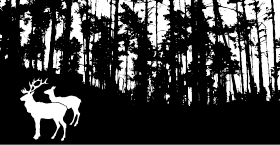
Introduction
The idea of being prepared for any type of disaster is not new, but with reality TV shows such as Survivorman and Man vs. Wild bringing the importance of wilderness survival into the public eye and making it glamorous, people are becoming aware of wilderness skills they should have, even in this modern world. It is no longer only crazy mountain folk who can make fire with flint or learn how to eat wild roots. These are skills anyone can master, and even a small kit of gear can help you survive an unexpected problem in the woods.
In the past, it was generally common knowledge how to start up a fire or read a map. Today, our lives have changed, and these skills are no longer commonplace. We travel with GPS units in our cars and rarely have the need to start a fire. Modern technology has made our lives easier, and yet it has also caused us to move away from these basic hands-on type of skills. Unfortunately, technology can fail at any time. Your learned skills, on the other hand, are always ready to use.
There are many potential disaster situations, but the most common ones are covered here, and their respective chapters offer specific gear requirements and skills you will need to survive each particular catastrophe. Overall, the techniques and skills presented should help you survive any possible scenario and be ready for anything. You will be able to make a fire, find water, forage for food, and take the right steps to getting rescued. Seem extreme? The fact is that these basic needs can be at risk in an emergency, and it might be up to you and you alone to provide for the needs of yourself and your family.


